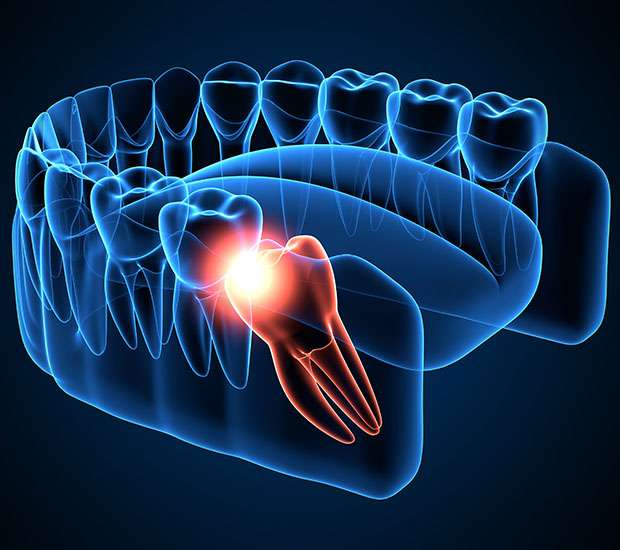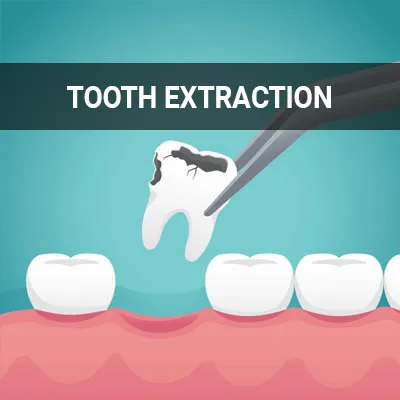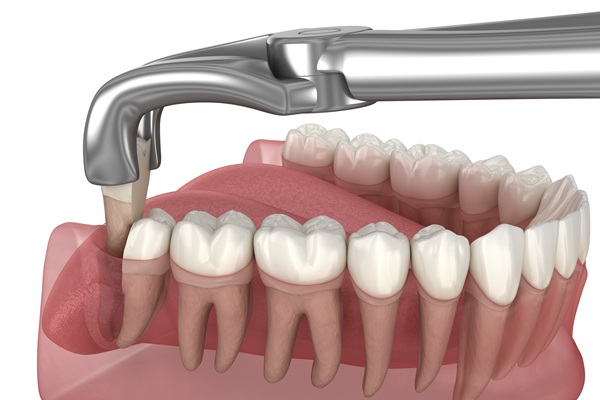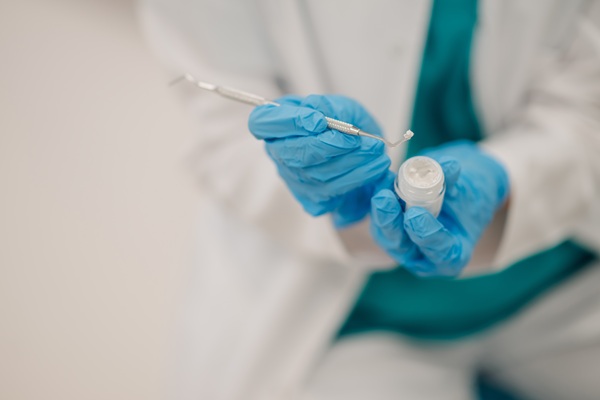Wisdom Teeth Extraction Bandera, TX
Wisdom teeth extractions are a fairly common procedure that helps alleviate pain or pressure associated with improperly developing wisdom teeth. Extracting the wisdom teeth becomes necessary when the surrounding teeth, gums, and bone are at risk because of the way the wisdom teeth have erupted or are erupting. Early detection of their development can greatly reduce healing time and improve a patient's overall oral cavity.
Wisdom teeth extractions are available at Frontier Family Dentistry in Bandera and the surrounding area. We can help determine whether an extraction is recommended or necessary. We can also discuss other alternative treatments and help you decide the best route for you. Call us today at (830) 460-3111 to schedule an appointment or learn more about our services.
Reasons for Wisdom Teeth Extractions
Wisdom teeth are the last set of molars and permanent teeth that emerge in the back of the mouth. They generally erupt between the ages of 17 and 21, granting them the name "wisdom teeth." However, in some cases, they never come out at all. Since they are the last teeth on each arch and have no security between them, wisdom teeth can erupt at any angle.
Wisdom teeth are often removed for preventive purposes, as they can cause pain and oral health problems later in life, even if there is no present pain. Extraction becomes necessary when the wisdom tooth or teeth are damaging the other teeth or the jaw, causing sinus issues, inflamed gums and cavities, or are impacting teeth alignment. These more serious problems can result in various oral conditions as the patient gets older.
“Extraction becomes necessary when the wisdom tooth or teeth are causing damage to other teeth or the jaw, causing sinus issues, inflamed gums and cavities, or are impacting teeth alignment.”
What to Know Before Wisdom Teeth Extraction
Wisdom teeth extraction is commonly performed and generally safe when carried out by qualified doctors. However, like any other surgery, it does carry a small risk of complications. These include bleeding, dry socket, and infection. Our team will do everything we can to minimize these risks even further. However, patients should contact our office immediately if they find themselves experiencing any of the following symptoms after their extraction:
- Absent or dislodged blood clot at the extraction site after surgery
- High temperature
- Yellow or white discharge from the extraction site
- Persistent pain and swelling
- Persistent, heavy bleeding that does not subside over time
- Throbbing pain in the gum or jaw
- Unpleasant smell or taste in the mouth
Most potential complications following wisdom teeth extraction are easily treatable when reported to the doctor.
“Wisdom teeth extraction is commonly performed and generally safe when carried out by qualified doctors.”
Preparing for Wisdom Teeth Extraction
The first step to wisdom teeth extraction begins with an initial consultation. During this time, patients should be open and honest with their doctor about their entire medical history. This includes but is not limited to sharing any health problems they may have, any medications and supplements they may take regularly, and any lifestyle choices that may influence the success of the surgery. The consultation is also a good time for patients to assuage their anxieties by asking any questions about the procedure.
“The first step to wisdom teeth extraction begins with an initial consultation.”
Check out what others are saying about our dental services on Yelp: Wisdom Teeth Extraction in Bandera, TX
Process of an Extraction
The process of wisdom tooth extraction differs from patient to patient, depending largely on their age and the way the teeth have erupted in the mouth. There are two types of extractions: simple and surgical. A simple extraction is a minor procedure for patients with visible and easily accessible wisdom teeth and only requires local anesthesia. A surgical extraction is more complicated as the wisdom teeth lie beneath the gums and require small incisions to reach. We may administer a general anesthetic or IV to keep patients asleep during the procedure.
During a simple extraction, we use a special tool called an elevator to loosen the tooth out of its socket. We will place gauze behind the extraction site and towards the throat to prevent accidental swallowing of the extracted tooth. During a surgical extraction, we start by making small incisions to expose the tooth before removing the tooth piece by piece. In other cases, we may use the elevator to remove it as a whole, depending on its placement in the gums.
“During a simple extraction, we use a special tool called an elevator to loosen the tooth out of its socket.”
Questions Answered on This Page
Q. What are the potential risks of wisdom teeth extraction?
Q. How do I begin preparing for wisdom teeth extraction?
Q. What are the reasons for wisdom teeth extraction?
Q. What is the process of an extraction?
Q. What should I do after a wisdom tooth extraction?
People Also Ask
Q. What happens during a tooth extraction procedure?
Q. How can someone find out what procedures their dental insurance covers?
Post-Treatment Care
In most cases, patients recover from extractions within four days. However, it may take up to a week. Additionally, the empty socket will likely remain for a month or two before it completely heals and closes up. It is crucial to follow post-treatment instructions for faster healing and to maintain good oral health. We recommend resting the first day after the procedure, and avoiding strenuous activity, the use of straws, smoking, and spitting for the first few days. Patients can use an ice pack to reduce swelling and should replace the gauze every few hours to keep the extraction site clean.
If you are experiencing pain, swelling, or inflammation that lasts more than a week, call us immediately to schedule a follow-up appointment. There is a risk of infection if the site is not properly maintained or healing incorrectly. We can take a look at the area and take any necessary X-rays to determine why you are experiencing these symptoms.
“We recommend resting the first day after the procedure, and avoiding strenuous activity, the use of straws, smoking, and spitting for the first few days.”
Frequently Asked Questions
Q. What is the average age of patients who remove their wisdom teeth?
A. Wisdom teeth generally erupt between the ages of 17 and 21 but can also come out later in life. We like to examine all patients from the age of 17 onwards to monitor their tooth development and detect wisdom teeth eruption as soon as it occurs.
Q. How do I know if my extraction site is healing correctly?
A. Recovery time after an extraction is between three to five days, wherein the socket should begin to close in. It could take about a month or two for the entire site to close. However, if the gums look and feel normal (no swelling or redness), the site should be healing correctly. We like to schedule follow-ups after an extraction to make sure the site is healing properly.
Q. How can I detect dry socket if I do not have pain?
A. In most cases, patients will experience pain from a dry socket. They may also experience a foul smell or notice exposed bone. A dry socket occurs when a blood clot was dislodged earlier than necessary or did not form at all, exposing the bone underneath. Therefore, if a blood clot is not present, a dry socket is very likely.
Q. Can I drive myself back home after wisdom teeth extraction?
A. Patients undergoing a simple extraction with local anesthesia can drive back home as they will only feel numb in the mouth. However, surgical extractions with general or IV anesthesia will need to be driven back after the procedure as they will not be fully alert. We will discuss this during the consultation appointment prior to the procedure.
Q. Can I remove all four wisdom teeth in the same visit?
A. Patients that need all of their wisdom teeth removed can have them all removed in one visit. We may also recommend extracting two on the same side during each visit as the entire area will be numbed anyway. This will reduce the cost, recovery time, and discomfort associated with each extraction.
Dental Terminology
Helpful Related Links
- American Dental Association (ADA). Glossary of Dental Clinical Terms. 2025
- American Academy of Cosmetic Dentistry® (AACD). Home Page. 2025
- WebMD. WebMD’s Oral Care Guide. 2025
About our business and website security
- Frontier Family Dentistry was established in 2015.
- We accept the following payment methods: American Express, Cash, Check, Discover, MasterCard, and Visa
- We serve patients from the following counties: Bandera County, Kerr County, Kendall County and Bexar County
- We serve patients from the following cities: Bandera, Medina, Kerrville, Pipe Creek, Lakehills, Tarpley, Boerne, Vanderpool, Comfort and San Antonio
- Norton Safe Web. View Details
- Trend Micro Site Safety Center. View Details
Back to top of Wisdom Teeth Extraction











